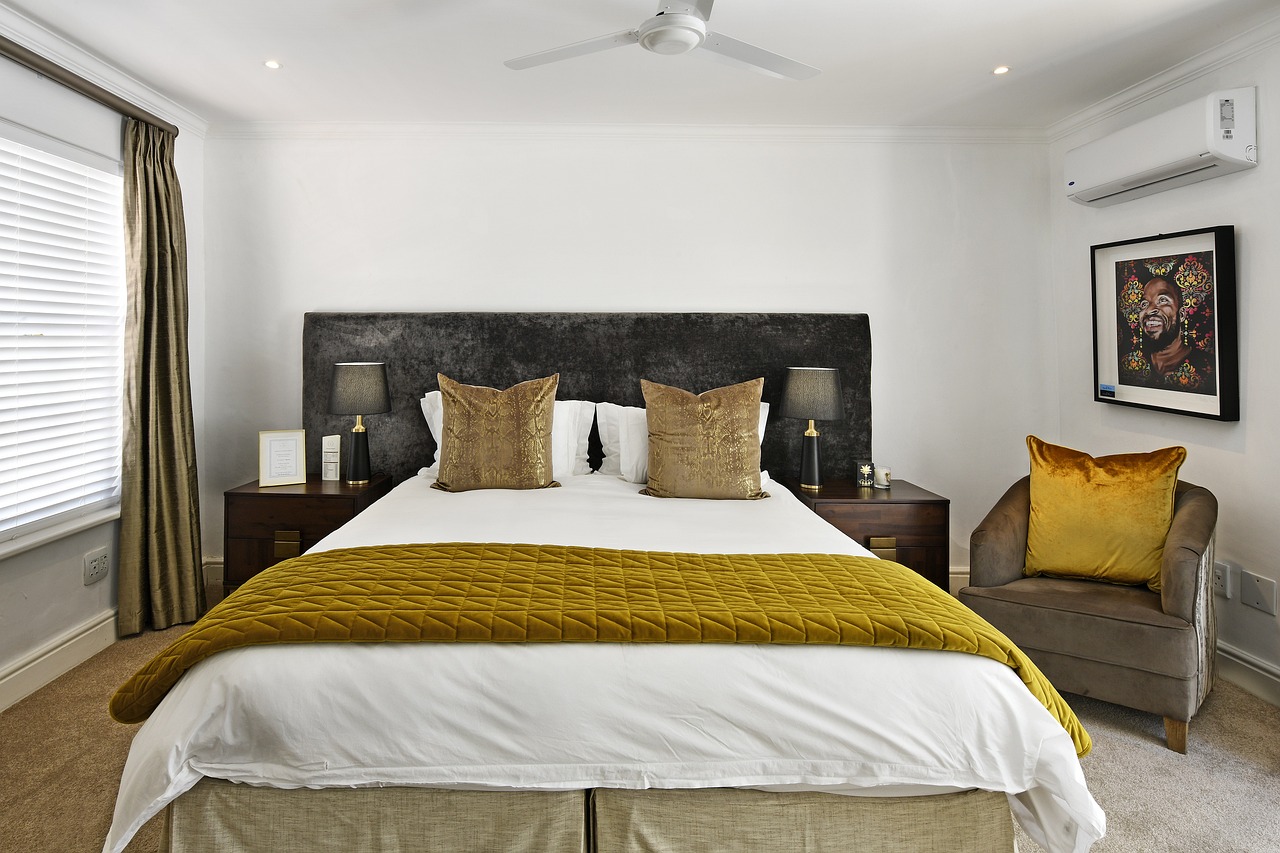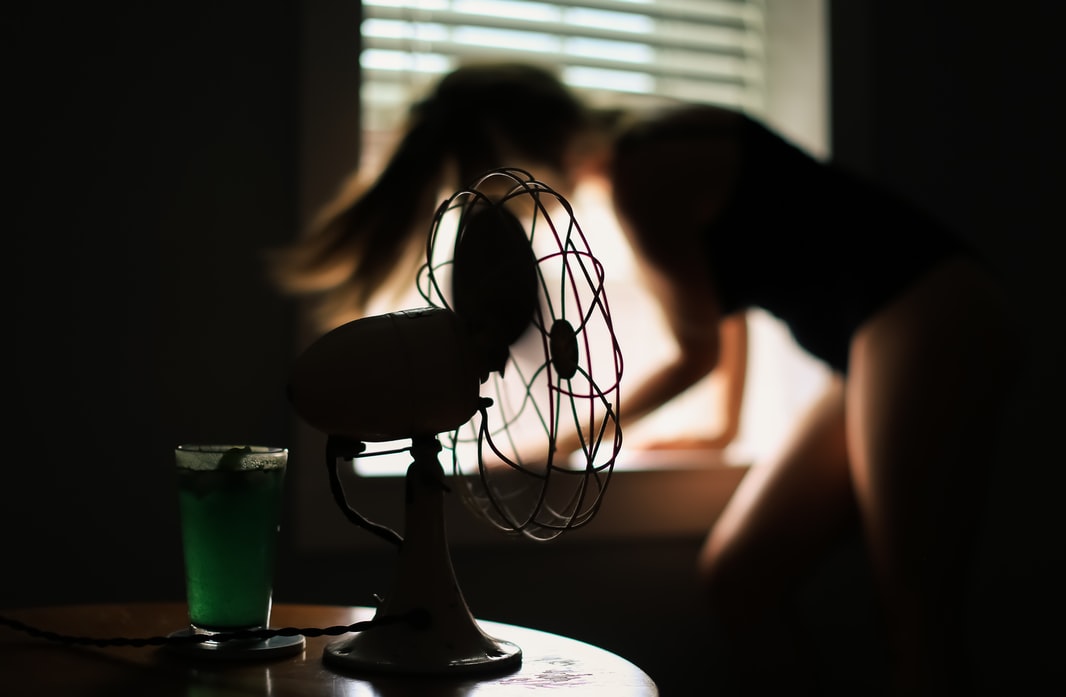Aircon Tips for Rental Properties in Australia:
Balancing Comfort and Energy Costs

Air conditioning is a lifesaver during those sweltering hot days when the sun feels like it's out to fry you up. But let's face it, cranking up the AC can lead to jaw-dropping electricity bills and running costs that can bring tears to even the toughest Aussie's eyes. So how do we keep our homes cool and our bank accounts happy? That's where the art of balancing comfort and energy costs comes into play.
In this guide, we'll dive into the ins and outs of air conditioning systems, discuss the factors that affect energy costs, and provide you with a treasure trove of tips to optimise aircon usage. We've got you covered, from setting a new air conditioner to the right temperature to leveraging energy-saving features.
What are Air Conditioning Systems?
Picture this: It's a scorching summer day, and the heat outside temperature already feels like a relentless wave crashing down on you. Enter air conditioning, your trusty ally against hot, sweaty discomfort. But what exactly is air conditioning?
In a nutshell, air conditioning alters the temperature, humidity, and overall air quality within a space to create a more comfortable environment. It's like having your personal weather control system in your home or office. The magic of air conditioning lies in its ability to remove heat and moisture from the air and indoor humidity and leave you with cool, crisp, and refreshing air to breathe.
Types of Air Conditioners Commonly Used in Rental Properties
Regarding air conditioning options commonly used in rental properties, there are several types to choose from. Let's explore some of the most popular ones:
Ducted Air Conditioning
Ducted air conditioning systems are often preferred for larger rental properties or those with multiple rooms. These systems consist of a central unit that cools and distributes the air through a series of ducts, delivering cool air to each room through vents. Ducted air conditioning offers whole-house cooling with the ability to control individual room temperatures.
Split System Air Conditioning
Split-system air conditioners are popular for residential and rental properties. They consist of two main components: an indoor unit that blows cool air into the room and expels heat. Split systems are versatile and efficient. They are often installed on walls or mounted on the ceiling.
Window/Wall Air Conditioner
Window or wall air conditioners are compact units typically installed in a window or an opening in an external wall. They are a cost-effective option for smaller rental properties or individual rooms. These units cool the air and expel heat through the back or sides. They offer easy installation and can be a convenient solution for localised cooling.
Portable Air Conditioner
Portable air conditioners are versatile units that can be moved around and placed in different rooms. They typically have a ceiling fan and a vent that exhausts hot air from a window or through a wall. Portable air conditioners offer flexibility and suit tenants who cannot permanently modify the property.
Each type of air conditioner has advantages and considerations depending on the property size, layout, and individual preferences.
Factors Affecting Energy Costs
Now that we've acquainted ourselves with the different air conditioning systems, it's essential to understand the factors influencing energy costs. By being aware of these variables, we can make informed decisions to optimise our aircon usage and keep our energy bill in check.
Outdoor and Indoor Temperature
Outside and indoor temperatures significantly impact your air conditioning's energy consumption. On scorching hot days, when the mercury rises, your aircon works harder to cool the air to your desired temperature. The greater the difference between outdoor and indoor temperatures, the more energy your air conditioner will consume.
Humidity Levels
Humidity levels can also affect how your air conditioning system operates. High humidity makes the air feel sticky and uncomfortable, prompting your aircon to work harder to remove heat and moisture from the air. This increased workload can lead to higher energy consumption and, subsequently, higher energy bills. Keeping humidity and consistent temperature levels in check can help optimise energy usage.
Energy Consumption and Power Bills
Unsurprisingly, the more energy your air conditioning unit consumes, the higher your power bills will be. Energy consumption depends on factors such as your unit's cooling capacity, the system's efficiency, and how long and frequently it is used. Being mindful of energy consumption and finding ways to reduce it can lead to significant savings on electricity bills.
Impact of Heating and Cooling on Energy Bills
While air conditioning provides cool relief during hot days, heating your rental property during colder months can also affect energy costs. Heating systems, including reverse cycle air conditioners, consume energy to move warm air into your space. Balancing the usage of heating and cooling throughout the year and optimising temperature settings can help manage energy bills.
Energy Efficiency of Air Conditioning Units
Your air conditioning unit's energy efficiency is critical in determining how much energy it costs. High-efficiency units are designed to deliver optimal cooling while minimising energy consumption. Look for units with a high Energy Efficiency Ratio (EER) or a good star rating to ensure you get the most out of your aircon without draining your wallet.
Optimising Aircon Usage for Energy Savings
Now that we understand the factors that affect energy costs, it's time to explore practical tips and strategies to optimise our aircon usage. By implementing these techniques, we can strike the perfect balance between staying comfortable and saving energy. Let's dive right in!
Setting the desired temperature:
- Balancing comfort and energy costs: Finding the sweet spot between comfort and energy efficiency is crucial. Avoid setting your air conditioner to extremely low temperatures, as it significantly increases energy consumption. Instead, opt for a temperature that keeps you comfortable without overworking the aircon.
- Recommended temperature ranges for different seasons: During the hot Aussie summer, aim for a temperature range between 23 °C and 26 °C (73 °F and 79 °F) to achieve a cool and comfortable indoor environment. In winter, adjust your reverse cycle air conditioner to a cozy temperature range of 18 °C to 20 °C (64 °F to 68 °F) for heating.
Using energy-saving modes and features:
- Energy-saving mode on air conditioning units: Most modern air conditioning units come equipped with an energy-saving mode. Activate this mode to optimise energy usage by adjusting the cooling output and fan speed based on the desired temperature. It helps maintain a comfortable environment while reducing energy consumption.
- Utilising smart thermostats and AC controllers: Upgrade your aircon experience with smart thermostats and AC controllers. These intelligent devices offer features like sleep mode and economy mode, which automatically adjust temperature settings and fan speeds to conserve energy without compromising comfort. Some even utilise human sensors and remote control functionalities to optimise energy usage based on occupancy.
Leveraging natural ventilation and other cooling options:
- Ceiling and pedestal fans: Supplement your air conditioning with ceiling or pedestal fans. These energy-efficient alternatives circulate cool air throughout the room, allowing you to raise the temperature on your aircon while maintaining comfort. Consider using fans alone during mild weather to keep the air flowing and reduce reliance on the aircon.
- Managing direct sunlight and the sun's rays: Direct sunlight can heat your space, making your air conditioner work harder. Utilise blinds, curtains, or shades to block out the sun's rays during the hottest parts of the day. Reducing the heat load on your aircon can save energy and maintain a cooler environment.
- Using a combination of cooling methods for efficiency: Instead of solely relying on your air conditioning, explore other cooling options like natural ventilation and cross-ventilation. Open windows and doors strategically to let in cool breezes during the cooler parts of the day. Combining different cooling methods can reduce the need for excessive aircon usage.

Regular maintenance and air filter cleaning:
- Importance of clean air filters for energy efficiency: Regularly clean and maintain your air filters to ensure optimal energy efficiency. Dirty filters restrict airflow, making your aircon work harder to cool the air. Cleaning or replacing filters, as the manufacturer recommends, helps maintain proper airflow, reducing energy consumption.
- How dirty filters can impact energy consumption: A dirty filter can increase energy consumption by up to 15%. It affects the cooling efficiency of your aircon and strains the system, leading to higher energy bills. Make it a habit to clean or replace filters every few months to keep your aircon running smoothly and efficiently.
By implementing these aircon optimisation strategies, you can enjoy a comfortable indoor environment while controlling electricity costs and bills.
Final Words
Remember, every small change you make in optimising your aircon usage can significantly impact your energy consumption and costs. It's about saving money and contributing to a more sustainable future by reducing power consumption and carbon footprint.
To expand your knowledge in decreasing additional energy bills and other resources, "Upside Down" recommends exploring energy-saving programs offered by your local government or energy providers. These programs often provide valuable information, incentives, and discounts on energy-efficient appliances, including air conditioning units.
Stay cool, save money and energy, and enjoy the comfort of your rental property without breaking the bank. Here's to a future where we can all enjoy the perfect balance between convenience and affordability!